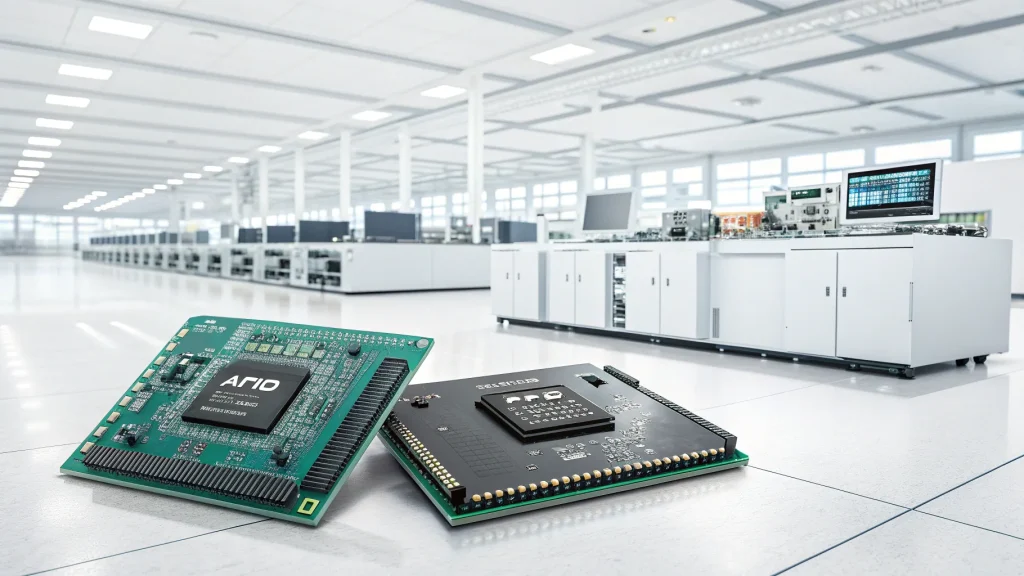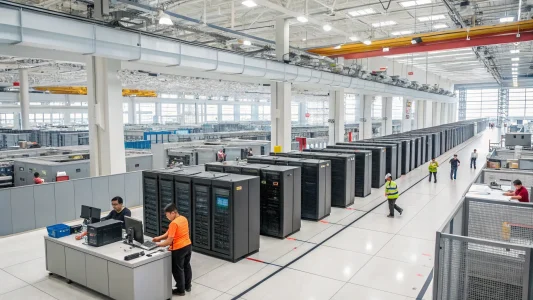Advanced Micro Devices (AMD) is reportedly exploring the possibility of becoming a customer of Intel Foundry Services, according to industry sources. This potential partnership would add AMD to a growing list of companies supporting Intel during its current financial difficulties.
The news comes as Intel continues to face significant challenges in the semiconductor manufacturing sector, with the company working to revitalize its foundry business amid increased competition and technological setbacks.
Strategic shift in semiconductor manufacturing
If AMD moves forward with this decision, it would represent a notable shift in the competitive dynamics between the two longtime chip rivals. For decades, AMD and Intel have been fierce competitors in the processor market, with each company striving to outperform the other in terms of performance, efficiency, and market share.
This potential arrangement follows recent support from the Trump administration, which has shown interest in bolstering Intel’s position as a domestic semiconductor manufacturer. The U.S. government has identified chip manufacturing as a matter of national security and economic importance, leading to various initiatives aimed at strengthening American semiconductor production capabilities.
Intel’s foundry services division was established to diversify the company’s revenue streams by manufacturing chips designed by other companies. This business model differs from Intel’s traditional approach of designing and manufacturing its own processors.
Industry impact and market reactions
The semiconductor industry has been closely watching Intel as It struggles to maintain its once-dominant position. Manufacturing delays, process node difficulties, and increasing competition from companies like TSMC have challenged Intel’s standing in recent years.
Market analysts suggest that having AMD as a customer would provide Intel Foundry with both revenue and credibility. “This would be a significant vote of confidence in Intel’s manufacturing capabilities,” said one industry expert who requested anonymity due to the sensitive nature of the discussions.
The potential partnership raises several questions about the specific chips AMD might have Intel produce. Given AMD’s existing relationships with other foundries, such as TSMC, any Intel-manufactured components would likely complement rather than replace current supply arrangements.
Broader context of semiconductor supply chain
The global semiconductor industry has faced numerous challenges in recent years, including:
- Supply chain disruptions during and after the COVID-19 pandemic
- Increasing geopolitical tensions are affecting technology transfer and trade
- Growing demand for advanced chips for AI, data centers, and consumer electronics
- Rising costs of developing cutting-edge manufacturing processes
These factors have led to a reevaluation of semiconductor manufacturing strategies across the industry, with companies increasingly willing to form unexpected partnerships to ensure supply chain resilience.
The U.S. government has also taken steps to support domestic semiconductor manufacturing through the CHIPS Act, which provides subsidies and incentives for companies building fabrication facilities on American soil.
Neither AMD nor Intel has officially confirmed these reports. Industry observers note that any potential deal would require extensive technical collaboration between the companies to ensure manufacturing processes meet AMD’s design requirements.
As the semiconductor landscape continues to evolve, this potential partnership highlights how competitive pressures and national interests are reshaping traditional business relationships in the chip industry. For Intel, securing AMD as a customer would represent a meaningful step in its efforts to revitalize its foundry business and maintain relevance in an increasingly competitive market.















